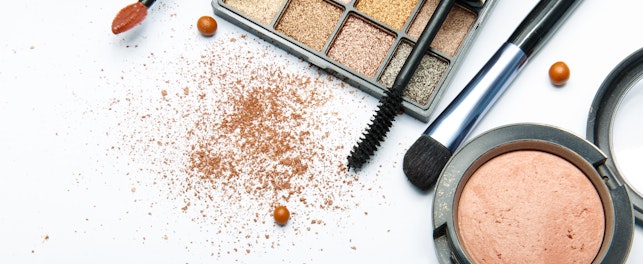Understanding skin barrier composition and function is vital when developing new cosmetic products. At SGS, our expert scientists operate at the forefront of skincare innovation, helping you to understand the complexities of skin in order to better develop products that enhance its resilience and repair capabilities.
Skin is a complex, multi-layered organ that serves as the body's first line of defense against external environmental factors. The most superficial layer, the Stratum Corneum (SC), serves as the primary barrier of the skin, responsible for preventing the entry of pathogens, allergens, and harmful chemicals, while also limiting water loss from the body to prevent dehydration.
The SC is made up of corneocytes, which are flattened, dead skin cells, embedded in a lipid matrix. These lipids are arranged in highly organized, densely packed layers that create a 'brick and mortar' structure, with corneocytes as the 'bricks' and the lipids as the 'mortar.' The lipid matrix consists mainly of ceramides, cholesterol, and free fatty acids. Together, they form a hydrophobic barrier that prevents excessive water loss, a process known as Transepidermal Water Loss (TEWL). This hydrophobic barrier is essential for maintaining hydration and overall skin health. Simultaneously, the SC acts as a mechanical and microbial shield, protecting the underlying skin layers and internal body systems from physical damage and microbial invasion.
Disruptions to the skin barrier function may result from environmental factors, genetic predispositions, or the use of harsh products, which can damage the SC and disrupt the lipid matrix, and thus lead to a variety of skin conditions. Maintaining a healthy skin barrier is essential for preventing a range of skin conditions, such as dryness and premature aging and may reduce or delay the appearance of flare-ups in atopic dermatitis and psoriasis.
Appropriate skincare routines play a crucial role in maintaining and restoring skin barrier function. Product efficacy largely depends on the formulation and the choice of ingredients including moisturizers, emollients, and occlusives. Skincare products, when formulated with the right ingredients and properties, can significantly contribute to the maintenance, restoration, and repair of the skin barrier, promoting overall skin health and resilience.
Clinical protocols have been developed to evaluate skin barrier functions and assess product effects on skin barrier repair and restore. Clinically relevant models can be obtained by recruitment of study participants with specific skin conditions or by inducing compromised skin barrier conditions through controlled physical and/or chemical methods. A wide range of methods are established to assess skin barrier function, structure, and composition.
For skin barrier function, TEWL, which correlates with the rate of water loss (inside-out barrier), can be measured using bio-probes. In vivo Confocal Raman Spectroscopy (CRS) can provide insights into the skin barrier's permeability (outside-in barrier). Skin’s hydration status, its ability to absorb/retain water, or its water resistance profile can also be measured. In addition, skin surface pH is an important indicator for skin barrier function as it plays a vital role in maintaining the skin barrier interaction with its microbial flora.
Noninvasive clinical methods for assessing the skin barrier structure and skin barrier composition provide crucial insights in how different factors can influence its function and integrity and ultimately provide scientific evidence on the effectiveness of skincare products designed to restore and repair the skin barrier. These include measurement of SC thickness, corneocytes shape and size, SC contents (natural moisturizing factors (NMF), ceramides, etc.), and organization and distribution of lipids within the skin barrier. Finally, it has been recognized that the interplay between skin microbiome and skin barrier is critical for skin health. Methods for analyzing skin microbiome composition, changes after product usage, and its impact on host immune responses have been established.
At SGS, our global network of clinical research facilities is at the forefront of skincare innovation, providing advanced and non-invasive research services to cosmetic manufacturers worldwide. Our scientists delve into the heart of the skin barrier composition and function, assessing how your products can enhance its resilience and repair capabilities, revealing how your products can fortify and strengthen it. Our experts will work with you to design a clinical study best suitable to your products and claims.
For more information, please contact:
Georgios Stamatas
Scientific Director, Cosmetics & Hygiene
Health & Nutrition, SGS
t: +33141248888
About SGS
We are SGS – the world’s leading testing, inspection and certification company. We are recognized as the global benchmark for sustainability, quality and integrity. Our 99,600 employees operate a network of 2,600 offices and laboratories around the world.



